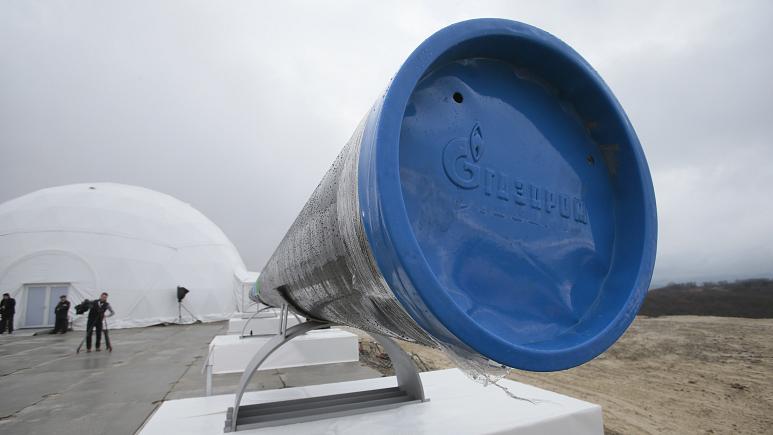Dr. Reza Abdollahi, in an interview with the website of the Strategic Council on Foreign Relations, referred to Russia’s efforts to bypass Ukraine in the gas transfer project to Europe, adding: Prior to the construction of Nord Stream 2, Russia’s natural gas pipeline to Europe passed through Ukraine by land, generating about 3 billion dollars a year. In the current situation, the removal of Ukraine from this transit has been finalized, and the Russian president and government have cleverly carried out this plan for years.
He described the flow of northern gas as well as the transfer of southern gas (Turkish flow) as two wings of Russia’s strategic plan to remove Ukraine from gas transit to Europe, adding: The signing of a 15-year agreement between Russia and Hungary with the aim of bypassing Ukraine from the gas pipeline has important consequences and will bring great geopolitical gains for Russia.
The university professor said: The general policy of the European Union and the United States has always been that Russian gas should be transited from Ukraine to Europe; because, in addition to economic benefits for Ukraine, this transit was considered a guarantee of its security; but after the US lifted sanctions on the Nord Stream 2 project, it became clear that Washington preferred its relationship with Berlin rather than with its allies in Eastern Europe.
Stating that the project is also a political success for Germany and Russia, Abdollahi said that weakening the unity of Europe’s position towards Russia is one of the consequences of removing Ukraine from the Russian-European gas pipeline project and noted: With this measure, Germany will have the upper hand to distribute fuel to other countries. While Russia has formed an alliance with Germany and then Austria, the Netherlands and Belgium against Eastern Europe, this is in fact a step towards creating a rift in the NATO alliance.
Recalling Hungary’s different approaches in its relations with Russia compared to other EU member states, including the import of the “Sputnik V” vaccine, he said: Bypassing Ukraine would be a major blow to the country’s transit position and it reduces the possibility of bargaining against Europe and Russia.
The analyst of Russia affairs referred to Russia’s long-term efforts to reduce its dependence on Ukraine in order in line with advancing the Kremlin’s policies on disputes, including its presence in Crimea, and stressed: Russia has sought to discard Ukraine’s bargaining chip, and now, as Europe becomes increasingly dependent on its gas, it has stepped up its bargaining chip with Europe in a number of areas.
Abdollahi, referring to Ukraine’s ongoing consultations to attract European and US support for Kiev’s involvement in the Nord Stream 2 gas project and its support for Russian threats, said: Europeans continue to emphasize that Russia must provide a strong guarantee for Ukraine’s participation in energy transfer projects. Germany has also pledged to pressure Moscow to extend agreements for transit charges with Ukraine before their 2024 deadline. But it is not yet clear how this promise will be fulfilled.
He added: Before the agreement was signed with Hungary, the Europeans, especially Ms. Merkel, had emphasized that the pipelines being built by the Russians were purely economic and should not be given geopolitical capacity. During her meeting with Mr. Trump, Ms. Merkel stated that Russia should provide a legal guarantee that does not exclude Ukraine, but the Russian president, in a meeting with Ms. Merkel, rejected this commitment!
The university professor, stressing that the nature of Russia’s executive plans is in line with eliminating Ukraine, said: In the current situation, Ukraine is not in a good situation, on the one hand, it is facing a reduction in benefits from the removal of transit and can no longer import gas from Hungary. However, Ukraine has been importing gas from Hungary since 2015 so as not to buy gas directly from Russia. On the other hand, there is no possibility of engaging with neighboring countries and creating diplomatic disputes.
Abdollahi, while referring to the statements of American officials that if Russia tries to extort money from Ukraine, sanctions will be imposed on it, said: Given that European countries are heavily dependent on Russian gas, they must prepare themselves for scenarios in which Russia does not guarantee that its gas will pass through Ukraine.
He also expressed concern among some analysts about the possibility of Russian military action against Ukraine, saying: Russia has achieved the great goal of a joint economic project with Europe and in order to stabilize this situation no action will be taken to destroy this situation. At the same time, Russia seeks to create a buffer zone between itself and the Ukrainian border and does not seek a complete solution to the problem.
Abdollahi explained: Russia only wants to create areas that are not legally dependent on Russia, but at the same time can have an unofficial presence there. By eliminating Ukraine and abolishing its bargaining chip, Russia has gained a foothold in this regard that it can use in its negotiations; because until now it needed a lot of Ukrainian infrastructure, but this is not the case now.
According to the analyst of Russia affairs in this situation, Ukraine does not have many options to put pressure on Russia, and they cannot hope for such pressure on the European Union. Thus, the balance of power in the Russia-Ukraine conflict has shifted in Russia’s favor. At the same time, the United States has insisted on its previous positions, stating that Ukraine should modernize its defense sectors and accelerate reforms in the law to join NATO in order to meet the organization’s standards, and that no timetable has been created for that country joining NATO.










0 Comments